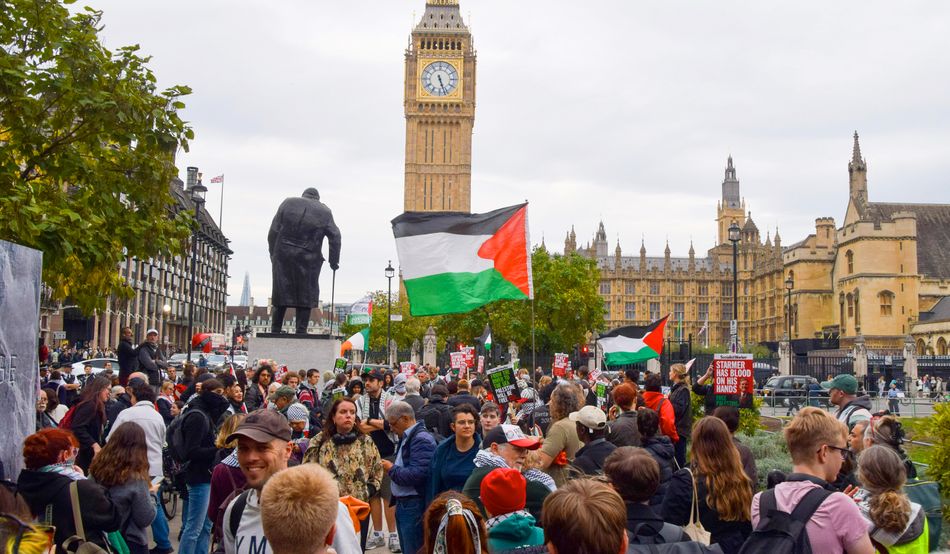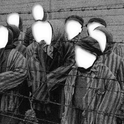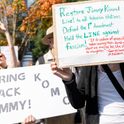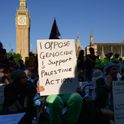The aftermath of a brutal attack such as happened in Manchester on Thursday calls for a measured, human and calm response. Don't jump to hasty conclusions. Avoid knee-jerk reactions. Comfort the sorrowful. Don’t let the bad guys win.
So we mourn with the families of Adrian Daulby and Melvin Cravitz, who lost their lives outside Heaton Park Hebrew Congregation synagogue on Yom Kippur, of all days. We acknowledge that this was an act of antisemitic hatred. We recognise the very real fear of Jewish communities across the land. We may, if we wish, pause to reflect or even pray.
But let’s not rush to judgement, or create more laws, or dish out blame. In my Facebook feed last night, a friend pronounced with some confidence that the attacker, Jihad al-Shamie, was “one deranged hate-filled madman whose mind had been warped by the BBC and other mainstream news outlets parroting endless Hamas propaganda since the atrocities of October 7”. So there we are, it’s all the fault of Jeremy Bowen and Lyse Doucet. Case closed.
The Home Secretary, Shabana Mahmood, was more reasonable. “The only person responsible for the devastating attack on our Jewish community is the attacker himself… That is separate to what is happening in the Middle East,” she said, when asked if recognising the state of Palestine had emboldened antisemites who might resort to such violence.
But in the same media round she called for this weekend's marches in support of Palestine Action to be scrapped. “I do think that carrying on in this way does feel un-British, it feels wrong.”
Three things jar about those words. The first is that they appear to link the Manchester attacks with what’s going on in Gaza, moments after disavowing any connection. The second is that suspending lawful and peaceful protest on account of a terrorist act feels very much like the bad guys winning.
The third is the appropriation of “Britishness”, used as a kind of verbal union flag with which to lend her argument a vestige of patriotic dignity.
My idea of Britishness is the opposite. The right to peaceful assembly may not have been enshrined in the Magna Carta, but it’s there in the 1689 Bill of Rights and has been reinforced over time, from Blackstone onwards, for at least 250 years.
Mahmood must have studied all the relevant cases when she read law at Oxford. She’ll surely know her Austin, Dicey, Jennings, Denning and Sedley—all great judges who, over the years, reiterated the fundamental right to peaceful protest. She will have learned about the 1882 case of Beatty v Gillbanks, in which members of the Salvation Army won the right to march on Sundays in Weston-Super-Mare, despite potentially inciting hostile crowds.
She may know of the pronouncement of Lord Justice Sedley in the case of Redmond-Bate v DPP, in which he said: "Free speech includes not only the inoffensive, but the irritating, the contentious, the eccentric, the heretical, unwelcome and the provocative provided it does not tend to promote violence… Freedom only to speak inoffensively is not worth having.”
So, from a purely legal point of view, the former Lord Chancellor is on shaky ground trying to portray lawful assembly as “un-British”. She could have questioned whether it was sensitive or questioned the taste of those intending to press on with their protest—acknowledging the fear that some in the Jewish community feel when it comes to antisemitic sentiment at marches for Palestine. But she might think twice in future before defining patriotism in such a clumsy way.
The Metropolitan police took a different approach, arguing that there were operational reasons for not wanting to police a protest in Trafalgar Square when they could be protecting synagogues. This feels more plausible. But you feel it would only take a quiet phone call from the Home Secretary to Met chief Sir Mark Rowley urging him to go easy on harmless placard-waving Quaker pensioners this weekend for the problem to be solved. It’s a question of priorities.
As for the killer, Mr al-Shamie, we will have to wait and see. The prime minister, Keir Starmer, was right to describe his actions as “a terrorist attack to inflict fear. Attacking Jews because they are Jews.” It was, in other words, antisemitism, pure and simple.
And yet there is a backdrop to the rise in antisemitism around the world since the heinous Hamas attack of October 2023 and the unrelenting response of the extremist Netanyahu government. And it’s a backdrop which requires infinite delicacy and nuance to negotiate.
On LBC on Thursday night Andrew Marr asked the commentator Hadley Freeman what he termed “a brutal question”: “Do you think that Benjamin Netanyahu has made Jews more vulnerable around the world?” Freeman answered, impeccably, that extremists on both sides—Hamas and in Israel—had made things more dangerous for Jews around the world.
It called to mind the profound soul-searching the American New York Times commentator Ezra Klein conducted after the 7th October attacks. Just before Christmas 2023 he mused on how his numerous podcast conversations to date had changed his thinking about Israel. “I am not certain, and, in fact, somewhat doubt, that Israel makes Jewish people safer,” he said.
“I’m a Jewish person. Do I feel safer? Do I feel like there’s less antisemitism in the world right now because of what is happening there, or does it seem to me that there’s a huge upsurge of antisemitism, and that even Jews in places that are not Israel are vulnerable to what happens in Israel?… It is both potentially, in some circumstances, a place that could protect us. But it is also, in other circumstances, a place that could endanger us.”
You may vehemently disagree with Klein or Freeman. But it’s surely not unconscionable for this weekend's marchers to believe that Hamas should release the hostages and that Netanyahu must end the bloodshed in Gaza—and that Jews around the world might, as a consequence of Netanyahu ending the war, begin to feel safer. Many former Israeli security officials, including those from Mossad and Shin Bet, feel rather the same. That is not the same as blaming Jews for Israel’s actions, which would be antisemitic, just like the Manchester attack was.
So, no, I don’t think it's un-British to continue with the weekend’s rally. I hope the marchers will be acutely sensitive to the real fear in Jewish communities and will act with due respect and empathy. But don’t let the bad guys win by suspending the right to assembly. Show what it really means to be British.













